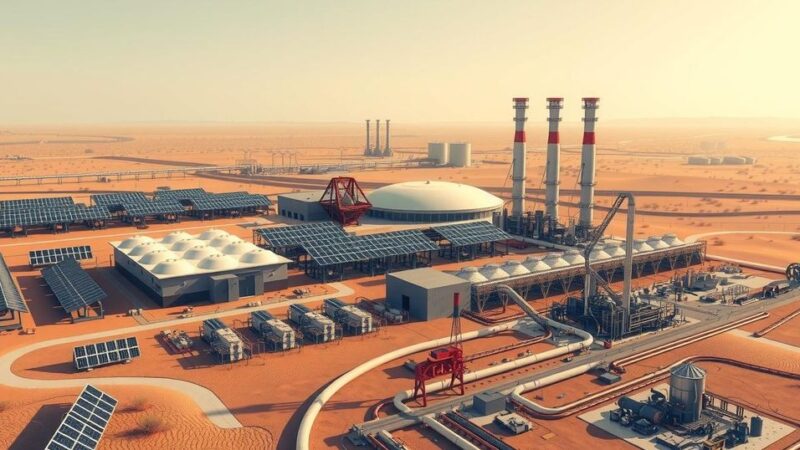Mozambique has signed a $1.5 billion gas pipeline agreement with Zambia. The project includes transport capacity of 3.5 million metric tons and aims to alleviate road traffic. Additionally, a modular fuel refinery project was announced, anticipated to be completed in 24 months. Mozambique seeks to enhance its position as an energy supplier amid ongoing developments in the LNG sector.
In a significant move for regional energy development, Mozambique has officially signed a cooperation agreement with Zambia to construct a gas pipeline valued at US$1.5 billion. The announcement was made by President Daniel Chapo on Wednesday during the 11th Mozambique Mining and Energy Conference (MMEC). This pipeline will connect Beira, Mozambique’s coastal city, to Ndola in Zambia, spanning over 1,000 kilometers.
The pipeline is designed with a substantial transport capacity of 3.5 million metric tons annually. It aims to alleviate road traffic along the Beira Corridor—an essential route linking Mozambique to several landlocked countries. However, the details of the funding for the project remain somewhat vague. President Chapo indicated that the commissioning of the pipeline is anticipated within four years.
Mozambique’s extractive sector is witnessing pronounced growth, evidenced by a 12 percent year-on-year increase in mining activity and over 117 shipments from the Coral Sul floating liquefied natural gas (FLNG) platform, managed by Italy’s Eni.
In addition to the pipeline, Chapo unveiled another major initiative—a joint venture between state-owned Petromoc and Aiteo Eastern E & P Group to establish a modular fuel refinery in Mozambique. The refinery project, expected to take shape within 24 months, will boast an impressive processing capacity of 200,000 barrels per day of liquid fuel, accompanied by storage for 160,000 tonnes of liquid fuel and 24,000 tonnes of liquefied petroleum gas (LPG).
Chapo labeled this refinery as a “transformative” project, asserting that it will enhance Mozambique’s role in the liquid fuel market while fostering job creation and reducing fuel imports. This announcement comes as the country amplifies its profile as a strategic LNG supplier.
Recently, Mozambique garnered further interest with the approval of a second FLNG platform in the Rovuma Basin, fueling excitement about previously stagnant LNG megaprojects. TotalEnergies, the French company managing a US$20 billion onshore LNG project, announced plans to resume operations soon, following a substantial halt that began in 2021 after the violent seizure of Palma by insurgents.
Despite the prevailing uncertainty in Cabo Delgado, TotalEnergies CEO Patrick Pouyanné expressed optimism regarding project timelines, stating, “The aim is to restart [the project] by mid-2025.” Meanwhile, ExxonMobil is making preparations to return to Mozambique for its own US$27 billion LNG project, contracting Italian firm Bonatti to refurbish the essential base on Afungi Peninsula by August’s end.
In summary, Mozambique’s collaboration with Zambia on a $1.5 billion gas pipeline marks a strategic advancement in energy infrastructure, promising to bolster regional economies and reduce traffic congestion. Alongside this, the establishment of a modular refinery signals a strong commitment toward enhancing the liquid fuel market. With ongoing positive developments, including burgeoning LNG projects, Mozambique is carving a path to solidify its energy value chain in Southern Africa.
Original Source: macaonews.org






